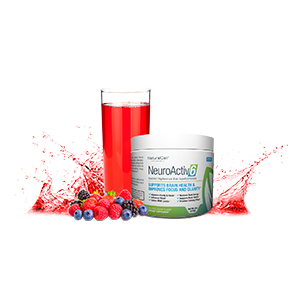
Table of Contents
What antioxidants rich foods help your immune system this winter? We discuss in detail below
The word “antioxidant” has become a powerhouse selling point in the food industry in recent years, typically used to convey nutritional and health benefits. Products rich in such antioxidants often carry titles such as “superfood” and “power-berries”; but what exactly makes antioxidants so impactful? Are they really as influential as they’re made out to be?
What is an antioxidant?
The word itself means “a substance that inhibits oxidation” (1). Oxidation occurs in the body as it metabolizes oxygen inhaled to produce energy for cells to use. During this process, free radicals are also generated which unfortunately damage the cells. Research is still investigating the complete impact how antioxidants help your immune system on a cellular and organismal level.
Free radicals are produced both by natural processes and by exposure to harmful agents such as X-rays and radiation. Once active, they cause damage by stealing electrons from proteins, DNA and organelles through oxidation.
Antioxidants can stop the oxidation chain reaction of free radicals by neutralizing them with a donated electron. This inhibits the free radicals from damaging essential cellular components, allowing such systems to maintain normal functioning, but thus far has been able to clarify certain effects:
1. Counteracts oxidative stress
As previously mentioned, antioxidants counter oxidative stress. Oxidative stress is correlated with the onset of most diseases. One particular instance of this can be demonstrated through oxidized cholesterol in low-density lipoprotein, or LDL. Compared to the natural LDL this oxidized version has a higher propensity to lead to plaque development in the arteries, increasing the likelihood of developing coronary heart disease (2).
2. Protects immune cells
Immune cells help the body fight against infection, injury and other pathogens. When damaged, functioning is not only disrupted on a cellular level but the more cells that are affected the less the body is equipped to battle unwanted invaders. Therefore, viruses and bacterial infections the body may be able to fight off when in optimal conditions could have possible deleterious results without the proper defense.
Antioxidants prevent free radicals from excessively damaging high numbers of immune cells. The immune system is particularly prone to oxidative stress due to its reliance on reactive oxygen species to fight infection (3).
3. Restores communication pathways
Another result of oxidative stress is disruption to communication between cells. When a cell is damaged, its ability to send necessary signals to other cells becomes hindered.
For example, a particular protein called p53 is a tumor suppressor, which is responsible for exactly what it sounds like- regulating cell division that leads to tumors. The antioxidant pathway it works through is a bit complex, but ultimately works by preventing accumulation of reactive oxygen species that lead to oxidation (4).
4. Reduces inflammation
Inflammation serves many beneficial purposes in the body, but it can also spiral out of control. Chronic inflammation can lead to fatigue, is implicated in numerous diseases such as depression, Alzheimer’s and cancers, as well as interfere with metabolic processes and cognitive functioning.
Since antioxidants can improve the immune system, they can also combat extreme and unhelpful inflammation that has the propensity to lead to disease and disrupt internal communication pathways.
This information has been brought to you by Natural Cell. NeuroActiv6 helps strengthens the immune system and bodily functions by acting as an antioxidant. Try it today.

Boost Mental Energy & Focus
Discover how just one glass a day of NeuroActiv6 can increase focus, clarity, and mental energy.
Learn More >>






 EMAIL:
EMAIL:
